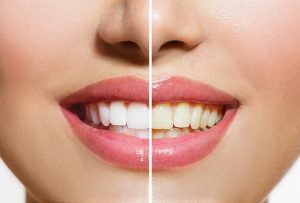Lowering Your Risk of Oral Cancer

Poor dental hygiene and oral health can lead to serious conditions like tooth decay, periodontal disease, and even oral cancer. It is important that you understand how to take care of your teeth and gums and visit your dentist serving Glen Ellyn on a regular basis. Your family dentist can screen you for this disease, which can allow you to start treatment as quickly as possible. Keep reading if you are interested in learning how to lower your risk of oral cancer.
Take Care of Your Teeth and Gums
People generally recognize the basic forms of dental hygiene: brushing your teeth twice each day with fluoride toothpaste, flossing every day, and keeping your dentist appointments. In addition to these basics, however, there are other ways in which you should be taking care of your teeth and gums. Another important aspect of oral health is nutrition. A healthy diet that includes fruits and vegetables can play a substantial role in the prevention of oral cancer. Beans, garlic, flaxseed, and tomatoes tend to be particularly effective. It also helps to boil or bake your food rather than grill or fry it, and lean towards the healthier spices like ginger and curry powder.
Break the Habit
Everyone has their vices, but some of them are worse than others. Drinking excessively and using tobacco products can both increase your risk of oral cancer. Drinking more than a couple of drinks per day can elevate your risk; the more often you drink and the greater amount you drink, the more likely you are to develop oral cancer. Smoking cigarettes, cigars, and hookah will also contribute to your risk of oral cancer, as will any form of smokeless tobacco. If you want to reduce your risk, quit tobacco, and keep the drinking to a minimum.
Visit Your Dentist Frequently
It is crucial that you see your dentist on a regular basis. He or she can screen you for oral cancer to determine your risk level and identify any signs you may be showing. This can help you identify the problem as quickly as possible so you can seek treatment immediately.
